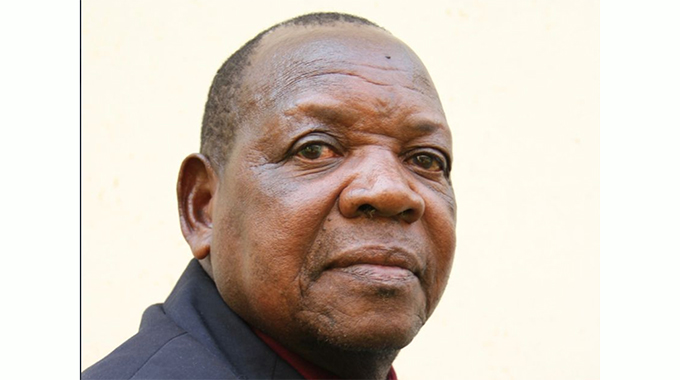President Mnangagwa mourns Brig-Gen Kanhanga

Joseph Madzimure Senior Reporter
PRESIDENT Mnangagwa has described Brigadier General (Rtd) Epmarcus Walter Kanhanga as a stalwart of the armed liberation struggle as he belonged to an early crop of freedom fighters who left the country to fight for independence.
He was 73.
Brig Gen Kanhanga died in his sleep early on Thursday morning at his rural home in Guruve, Mashonaland Central Province.
Born on January 6, 1950, Brig Gen Kanhanga went to school in Guruve before he skipped the country for military training.
In a statement, President Mnangagwa said the sad news of the sudden death early yesterday morning of Brig Gen Kanhanga was as devastating as it was unexpected.
“A stalwart of our armed liberation struggle and ever a grassroots man, the late Brigadier General Kanhanga belonged to an early crop of freedom fighters who left their homes, families, and interrupted their education far back in the early 1970s to join the armed struggle for our National Freedom and Independence,” said President Mnangagwa.
Back then, President Mnangagwa said it called for men and women of extreme courage and advanced national consciousness to brush aside the many perils which existed everywhere, in order to join in the armed struggle for national independence.
He said it required exceptional courage and a rare sense of sacrifice to dare and challenge what evidently looked like an invincible racist settler war machine, which had been carefully constructed and designed for more than half a century, solely to keep the indigenous people permanently subdued, occupied and in deep awe of the occupying foreign white settler power.
“Alongside key districts of Mashonaland Central, Mashonaland East and Manicaland, Guruve and cadres like the late Cde Kanhanga were instrumental in hosting early fighters who took the tempo of our struggle to a new, carefully cultivated level of a people’s war, after initial efforts by a courageous generation of founding cadres who had been trained and were active as small groups in the early 1960s. Guruve was singularly important in this second phase of our struggle; it saw early infiltrations by liberation fighters from both Zanla and Zipra, who used Zambia and parts of Mozambique as both rear and launching pads,” he said.
Moved by the spirit of struggle and an ardent desire to free his people, President Mnangagwa said:
“The late Brigadier General would be counted among this pioneering crop of cadres which ignited this decisive phase of our struggle. Our nation will forever salute and remember him and his brave comrades for this seminal role.”
After independence, the late Brig-Gen Kanhanga attested into the Zimbabwe National Army, rising through the ranks until he attained the top rank of Brigadier General.
“He saw further action as our defence force ably fulfilled its mission in building peace in our Sadc region, and in securing our strategic routes to the sea,” said President Mnangagwa.
On retirement from active service, Brig G Kanhanga resumed his role in the ruling Zanu PF party.
He ably represented the ruling party and community in the Parliament of Zimbabwe; in the Politburo and, at the time of his demise, in the ruling party’s highest decision-making organ between congresses, the Central Committee.
He served Government in the Office of Deputy Minister of Tourism and Hospitality Industry.
His appointment to the board of governors of Zimpapers, a publicly-listed publishing company formed at independence to decolonise and de-settlerise media structures, saw him contributing immensely towards its mooring into the ethos of liberation.
“On behalf of the ruling party, Zanu PF, Government, the Zimbabwe Defence Force, ZDF, our entire nation, and indeed on behalf of my family and my behalf, I wish to express my deepest, heartfelt condolences to the entire Kanhanga family, to his wife and children especially, on this their saddest loss.
“As they grieve over the passing on of their beloved son, husband, father and guardian, may they find solace in that the late departed stands tall in the epic story of the making of our nation, Zimbabwe.
“Those of us who worked closely with him, both before and after independence, keenly feel the loss, and join the Kanhanga family in mourning his sudden departure after a life of courage and illustrious service to his people and country,” he said.
He also served on the National Museums and Monuments of Zimbabwe.
He is survived by his wife and four children.
Mourners are gathered at number 33 Hyton Road, Mandara in Harare, while others are at his farm in Mvurwi. Burial arrangements will be announced in due course.









Comments